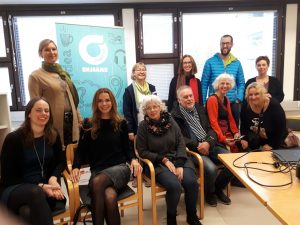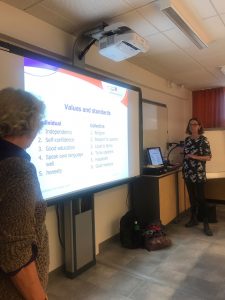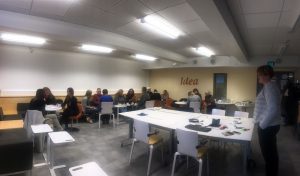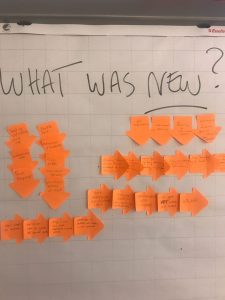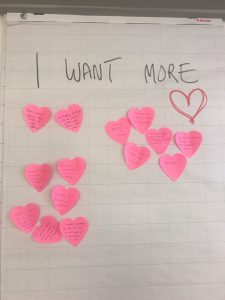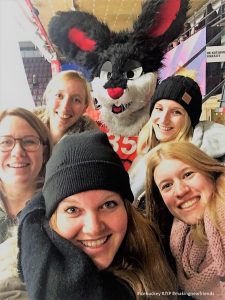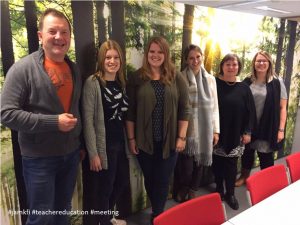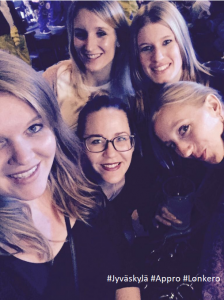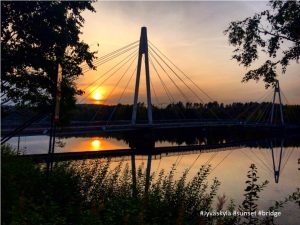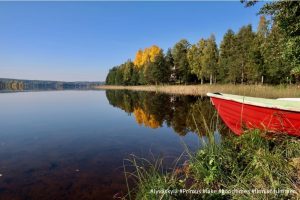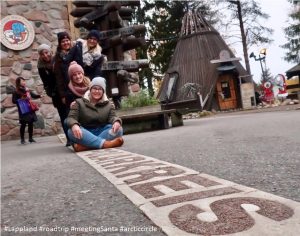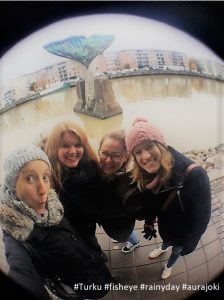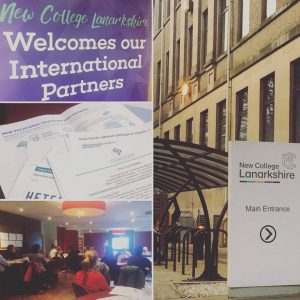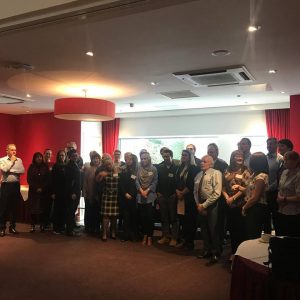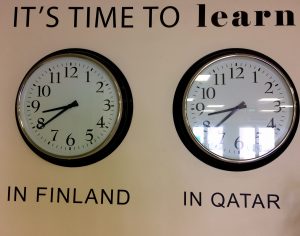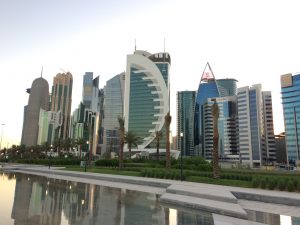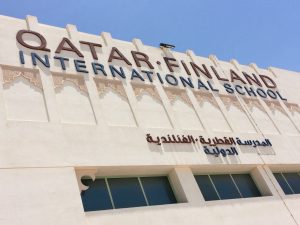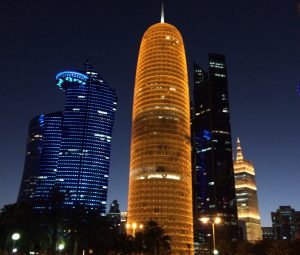The week before our mid-term break we had the pleasure of hosting ten visitors from the Netherlands. They came from one of our core partners, Rijn Ijssel VET College in Arnhem. The visit was a follow-up of several of our guidance and support staff having visited Arnhem in the recent years. The theme of this study visit was to explore the various elements in student centered support systems in the Finnish VET. The programme included many visits and lots of discussion on themes such as avoiding drop-outs, individualisation of learning and transition from comprehensive education to upper secondary education.
On the final day of the visit, the visitors themselves were put in ’the driver’s seat’ and they arranged a workshop on cultural differences – on the topic of we and I cultures – for the staff of Jyväskylä College and the five German trainee teachers that had been doing their placement with us for three weeks by then.
At the end of the day we also arranged an extensive feedback session for the visitors and asked them to share their thoughts on the visit and what they had learned. Here are some of their answers:
What was new?
- entrerpreneurship
- flexible start of studies
- own path/ individual learning/ focus more on individual than group
- practical learning at school
- the flexibility of the whole system
- possibilities in education also for adults / lifelong learning easier
- closer relationship between teacher and student
- free breakfast and lunch
- respect for teacher, each other, environment and buildings
What surprised you?
- same problems with the students e.g. drop-outs, attendance
- self-reflection at such an early age/ spending a lot of time on self-reflection
- no national tests/exams
- students are quiet
- great equipment
- education is free
- validation of previously acquired competences ( holiday jobs, social activities)
- no grade/ exam pressure
- personal help and support of the teacher for their students
- calling the teacher by their first name
What will you do? What kind of an impact will your visit in Finland have on your thinking, actions, way of working and/ or your organisation?
- changing school and lessons into a place the students like to go to
- individualize teaching more
- value traditions but also appreciate changes
- self-reflection for teacher and students
- focus on skills (still missing) and (not so much) on what students already can do
- introduce team teaching to my school
- introduce self-reflection
- lower the distance between teacher + team + counselor
- long term goal: start a course on entrepreneurship in my school
- make more use of what students do in their free-time and side jobs
I want more! What would you like to happen next?
- learn more about the matter of self-reflection
- continue exchange with the purpose of learning from each other
- learn more about education systems in Europe
- (have a system where students can) start education any time
- start pre-vocational programmes (valma)
- make a project on avoiding dropouts
- create warm, open, flexible individual learning paths without using so many hours for the inspections
- international exchanges
A lot of food for thought! The next step of this cooperation will take place in November when Principal Pirjo Kauhanen and Programme Manager Minna Ahokas will visit Rijn Ijssel. During this meeting the memorandum of understanding between the two colleges will be renewed, and who knows, perhaps some of the issues mentioned above will also be discussed?
More information
Minna Ahokas (at)jao.fi
Rea Tuominen (at) jao.fi
